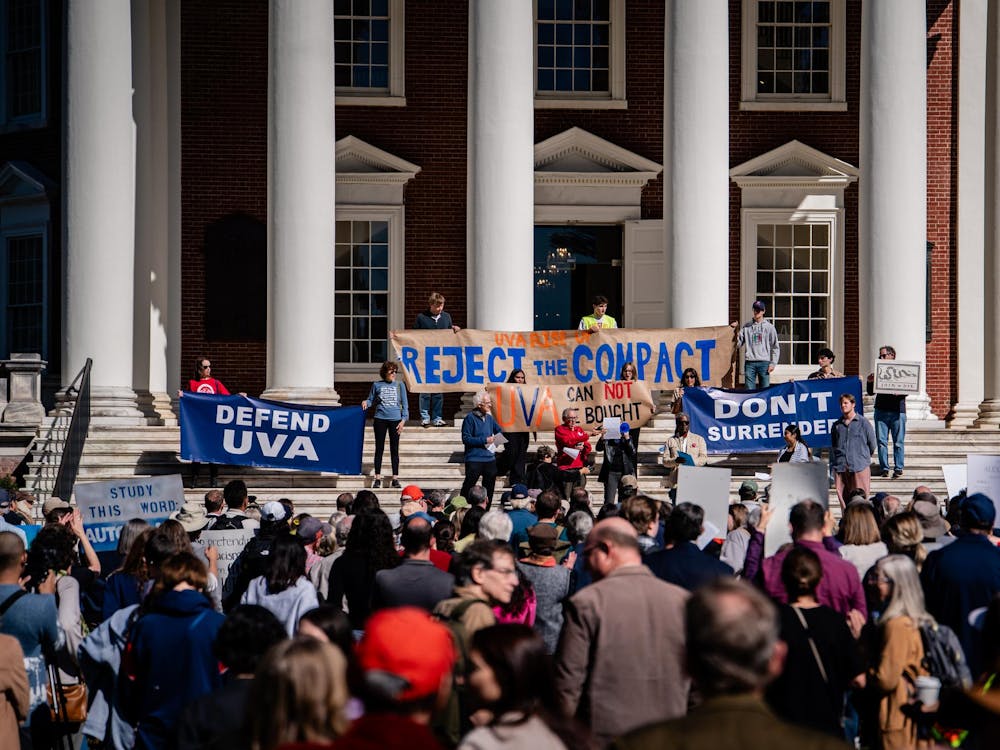As a country, we have an almost neurotic desire to rank things. We rank football teams, the best places to live, restaurants and, of course, colleges. In the 2013 U.S. News and World Report college rankings, the University was rated as the 24th best research university and the 2nd best public university in the country, a slight relief to the people who were fearful that the tumult of last summer would affect rankings adversely.
Why do we have such a preoccupation with rankings? Maybe it is our inveterate drive for competition that makes rankings so appealing to us: We order our country based on who is winning and who is losing. This drive for competition is not bad per se, but it becomes dangerous when we try to rank things that are intrinsically unquantifiable. What makes a university a good institution of learning? If you ask different people that question, you get different answers: a wide breadth of course selection, good research opportunities, small class sizes, availability of faculty.
Yet lists of “Best Colleges” abound. It is as if we imagined that everyone ranks colleges and universities with the same criteria even when it is apparent that we do not. Such lists do not really inform then; they only validate our notions. Lists comfort us. Of course Harvard will be ranked number one, because Harvard is… Harvard. When we think of Harvard, we think of a prestigious institution. Rankings provide a quantification of that notion. They have become a tool to purvey the brand of a school, so much so that college administrators actually make it an express goal to improve rankings to increase their school’s prestige. The recent scandals at Claremont McKenna College and Emory University, where administrators were found inflating test scores to improve rankings, suggest that this benign, if somewhat crass, goal has turned into an obsession for some universities.
Of course, it is not just administrators; parents and students have been bitten by the rankings-and-prestige bug too. Gerald and Lily Chow of Hong Kong, for example, paid a private consultant over $2.2 million to get their sons to Harvard. Some might object that the Chows are an exception, but the same obsession is present with most Americans.
To save you the suspense, their children were not admitted to Harvard. Mr. and Mrs. Chow are now promptly suing the private consultant.
Perhaps that example is an extreme case, but it should illustrate the somewhat obvious fact that the brand of a college is only tangentially related to the quality of its academics; what matters here is money. It is easy to assume that Mr. and Mrs. Chow were not spending $2.2 million for the learning and enlightenment of their children but rather to secure good job prospects in the future with a brand name diploma. They were probably thinking of a position in a hedge fund, not Plato.
“What’s wrong with money?” you ask. The cynic in me wants to say that nothing is wrong with money. The Chows know what they want, and they have the resources to get it. Good for them. The idealist in me wants to say that everything is wrong with money. Our obsession with rankings and prestige is but another manifestation of what transpired at the University over the summer: the conflict between treating colleges as ends in themselves or as mere means. The reinstatement of University President Teresa Sullivan is perhaps a sign that we still see colleges as bastions of human knowledge and learning, not businesses whose products are credentials and social status.
To attack rankings, then, would be to attack the symptom. So long there is an unhealthy obsession for climbing the social ladder and making a lot of money, they will exist; which means that rankings will never cease to exist. If you are all for rankings, then this is good news for you. If you are on the rankings abolishment camp, then my advice is to treat them as an immovable part of the landscape. Ignore the fact that they are not good measures for students to decide to which schools they should apply, that they are not good metrics of a school’s success and that they are just tools to propagate a vacuous notion of prestige and status; then you will not think rankings are so bad after all.
Rolph Recto is a Viewpoint writer for The Cavalier Daily.






